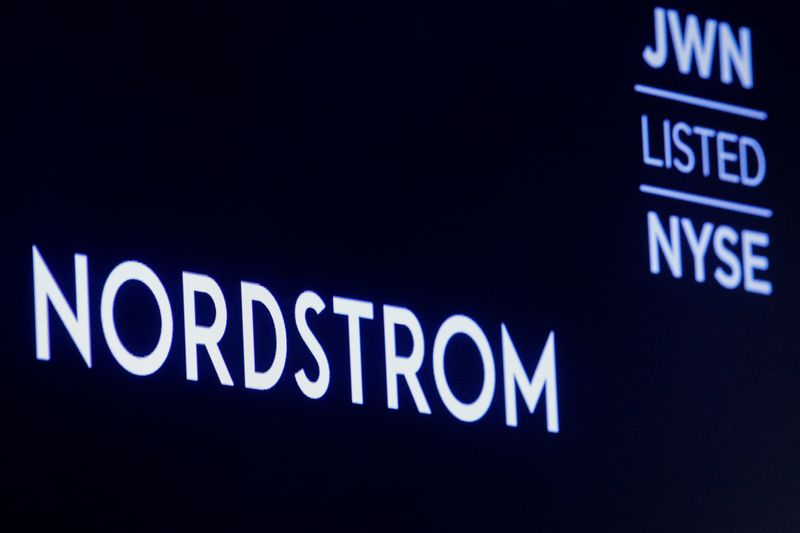By Deborah Mary Sophia
(Reuters) - Nordstrom Inc (NYSE:JWN) slashed its annual profit forecast after heavy discounting failed to sway people shopping at its off-price Rack stores, leading to weak holiday sales and pushing its shares down 6% in after-hours trading on Thursday.
The company said it now expected annual revenue growth to be at the low end of its previous expectation of 5% to 7%. Net sales at Nordstrom Rack fell 7.6% in the nine weeks to Dec. 31, from the nine weeks ended Jan 1, 2022.
U.S. retailers have been hit by Americans cutting back discretionary spending due to decades-high inflation, and their margins have come under pressure from steep discounts to clear bloated inventories.
Department store peer Macy's Inc (NYSE:M) tempered its holiday sales forecast earlier this month, blaming a deeper-than-expected lull in shopping between major holidays such as Black Friday and Christmas. Athleisure chain Lululemon Athletica (NASDAQ:LULU) Inc warned of a margin squeeze for the quarter.
People also pulled ahead purchases to as early as October, when retailers were offering higher discounts, leading to weaker-than-expected holiday sales, data from the National Retail Federation showed on Wednesday.
Nordstrom, though, is doing worse than rivals.
It has had to offer more markdowns than planned and its Rack banner is still facing inventory mismanagement and merchandising problems triggered by supply-chain issues over the pandemic, when it had a severe shortage of women's clothing and shoes.
"They have had chronic merchandising missteps and just cannot seem to get any form of consistency at Rack," William Blair analyst Dylan Carden said.
Nordstrom now expects adjusted earnings per share of $1.50 to $1.70 for fiscal 2022, compared with its prior outlook of $2.30 to $2.60.

Still, this year could offer some hope for Nordstrom and other retailers, analysts said, pointing to easing inflation, improved inventory levels and normalizing freight and labor costs.
"Going into 2023, it gives me some confidence that even if the first half is kind of weak, maybe it'll start to look better in the second-half of the year," Morningstar analyst David Swartz said.